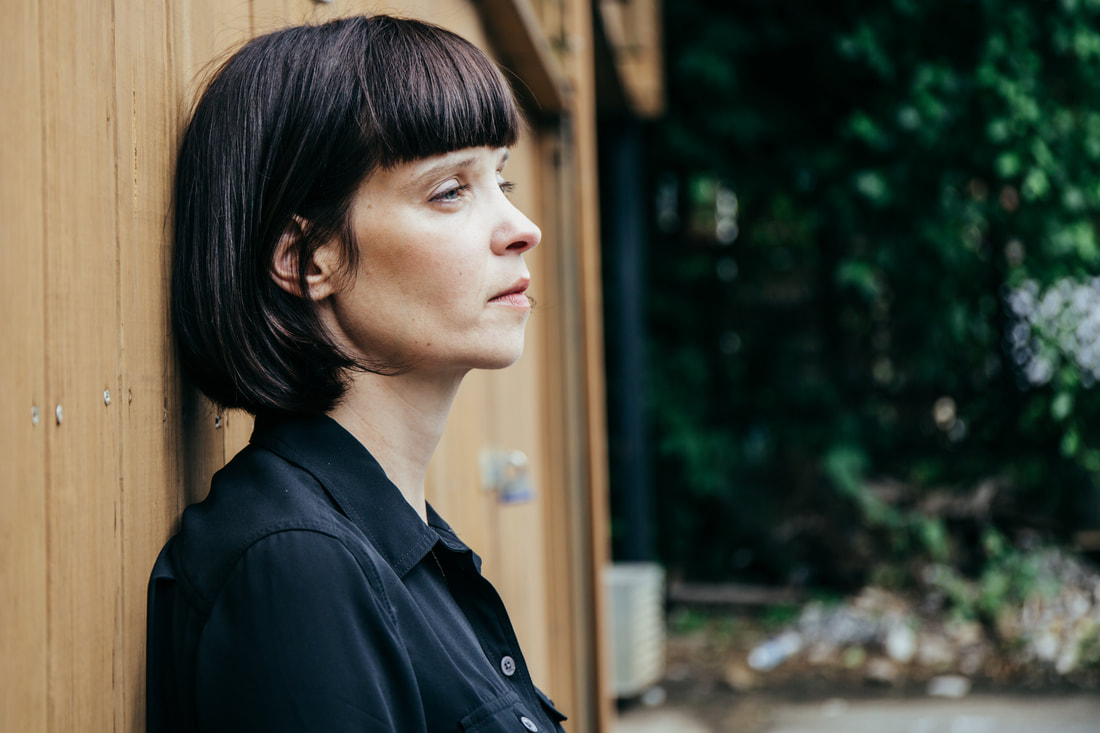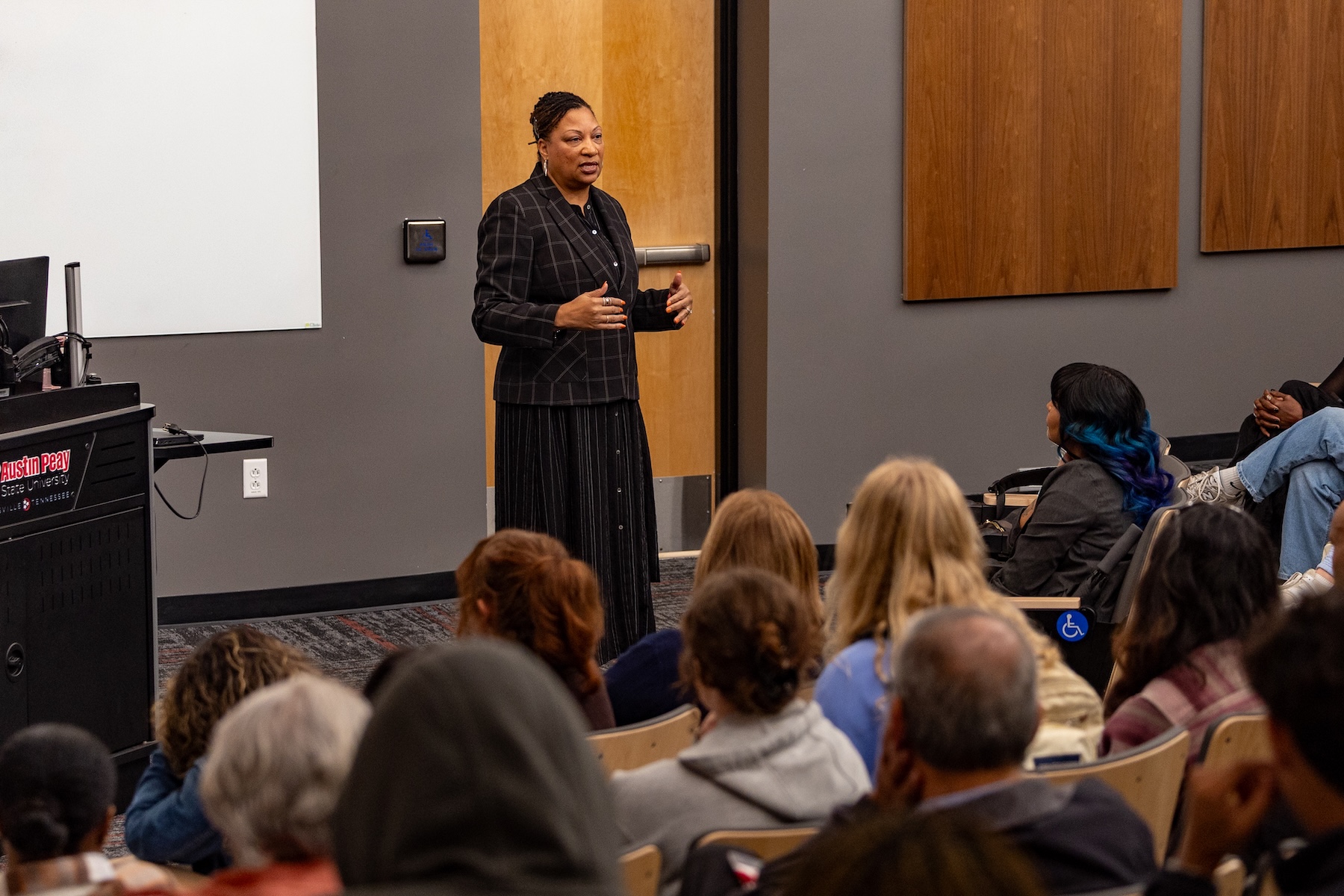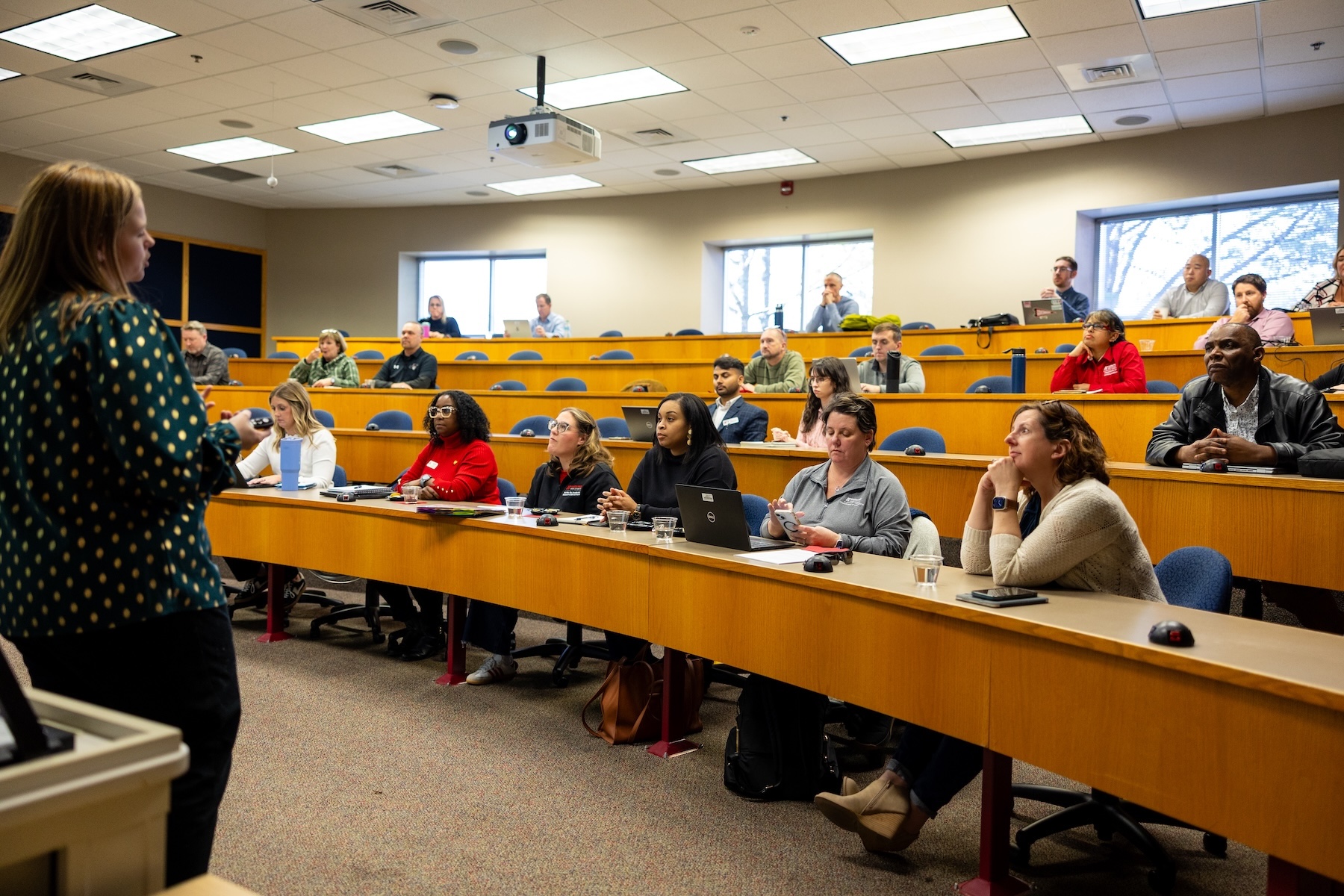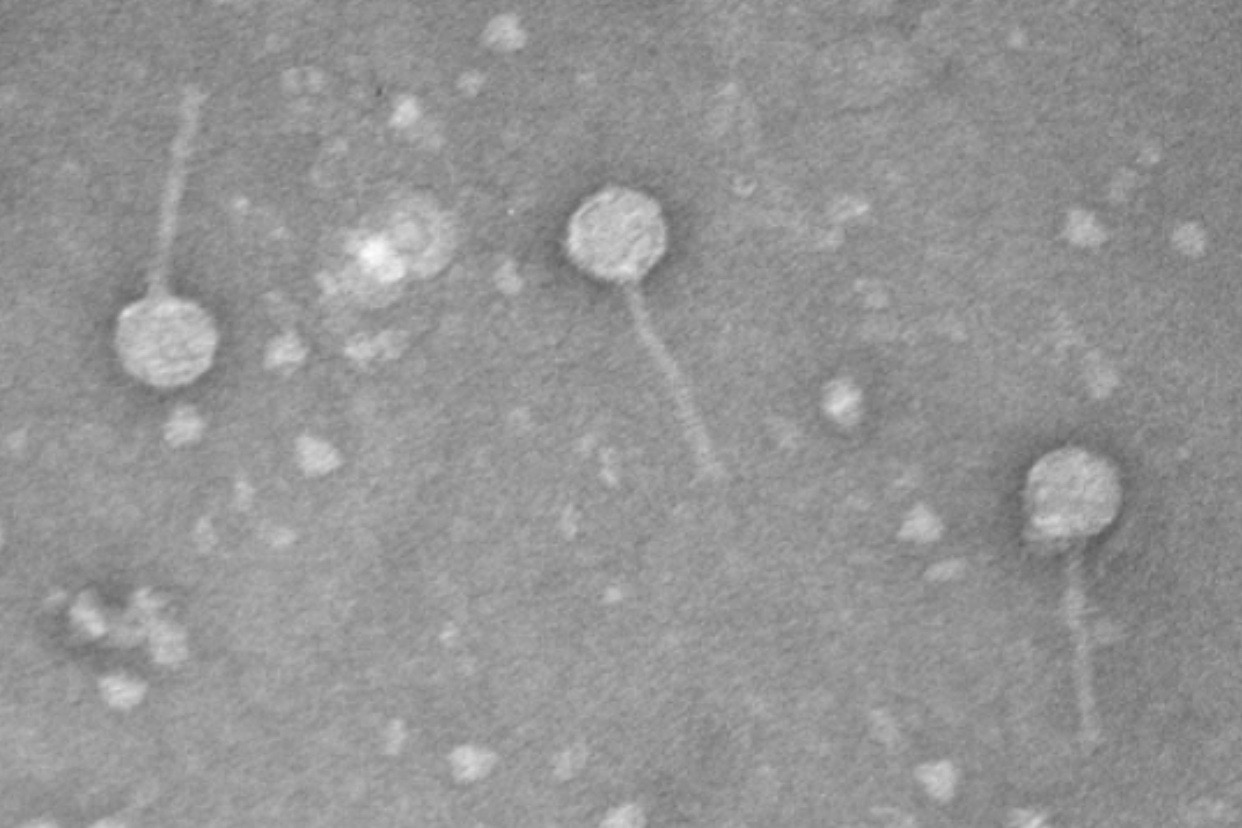Austin Peay’s student-discovered phages entered into national genetic sequence database
(Posted May 28, 2020)
More than a dozen Austin Peay State University students who have taken advantage of a unique research opportunity are now seeing their work recognized on a national scale.
Last fall semester, students in Dr. Sergei Markov’s biology classes discovered three new bacteria-infecting viruses called bacteriophages, aka phages. Another group of students annotated the genomes of the phages during the spring.
Now the DNA sequences of two of those phages have been entered into the National Institutes of Health genetic sequence database known as GenBank. A third APSU phage is expected to be added soon.
As part of their research, the students who discovered the three phages also earned the honor of naming them. The students and their phages are:
- Cole Bell named his phage Otwor, the polish word for hole “because my plaques were quite large compared to the others in the class.” You can see Otwor’s GenBank entry here.
- Elizabeth Mason named her phage Danno after her favorite character on the TV show “Hawaii Five-0,” Danny. “His character is very stubborn and hardheaded,” similar traits to her phage. You can see Danno’s GenBank entry here.
- Heath Simpson name his phage Scumberland because he found it on the banks of the Cumberland River. The team submitted Scumberland in early May.
The students and professors who worked on the phages are listed as authors in the GenBank.
Phage hunters started work last fall
Markov and 10 students started work in the SEA-PHAGES program last fall. The program offers students a yearlong laboratory course in which they discover, isolate and analyze phages. That work led to the discovery of Otwor, Danno and Scumberland.
During the spring semester, seven of Markov’s students worked on annotating the genomes of the three phages before submitting them to the University of Pittsburg, the lead institution for the SEA-PHAGES program.
Drs. James Church and Leong Lee from the Department of Computer Science and Information Technology joined the students, offering help in collecting and analyzing the complex biological data of the phage genomes.
The SEA-PHAGES goal is simple: Increase undergraduate interest and retention in the biological sciences through research immersion. Several thousand college students join the program each year, and their research goes into the massive GenBank. That bank has helped scientists find new ways to treat patients with debilitating bacterial infections.
Phages are bacteria-killing viruses. They’re harmless to humans, and scientists can study them easily. They’re everywhere. More than a nonillion phages – that’s 1 followed by 30 zeroes – exist on Earth in dirt, water and air. Markov’s students gathered most of their phages from dirt they found on campus.
To learn more
- For more about the APSU Department of Biology, go to https://www.apsu.edu/biology/.
- For more about the APSU Department of Computer Science and Information Technology, visit https://www.apsu.edu/csci/.
- To read more about the GenBank, visit https://www.ncbi.nlm.nih.gov/genbank/.
- For more about the SEA-PHAGES program, go to https://seaphages.org/.
News Feed
View All News
Austin Peay State University's Zone 3 Press, with support from the Center of Excellence for the Creative Arts, is hosting NEA Creative Writing Fellowship recipient and award-winning writer Toni Jensen for a free public reading and book signing at 7 p.m. on Thursday, Feb. 19, in Art + Design Room 120.
Read More
David Hogan of Ribbon Communications and David "Buck" Dellinger of the Clarksville-Montgomery County Economic Development Council (EDC) will share their real-world perspectives on leadership, innovation, and career development during this semester's speaker series.
Read More
Title III grant funding recently allowed 16 faculty members from across campus to participate in the Career Readiness Academy, an extended workshop series focused on labor market tools, curriculum development, and National Association of Colleges and Employers (NACE) competencies.
Read More
